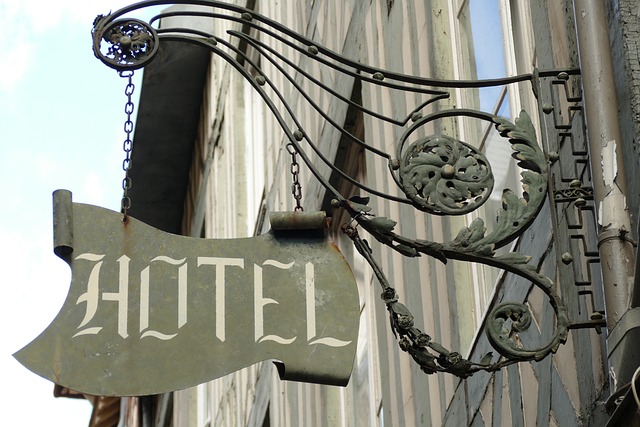Explore Job Opportunities That Include Housing Options in Europe
Finding the right job can be challenging — especially when relocation is part of the plan. Some job listings in various European countries include housing options, helping applicants settle into a new environment more smoothly. These roles span multiple fields and may suit both entry-level and experienced candidates. While not every position offers accommodation, some employers do provide solutions that simplify moving and living arrangements. Learn more about the types of roles available, how to apply, and what to expect from opportunities that may come with a place to live.

What types of jobs in Europe typically offer accommodation?
Jobs that include housing options in Europe often fall into specific categories. Hospitality roles, such as hotel staff, resort workers, and cruise ship employees, frequently provide accommodation as part of the employment package. Educational positions, including international school teachers and language instructors, may also offer housing assistance. Additionally, seasonal work in agriculture or tourism sectors sometimes includes temporary living arrangements for workers. Some au pair and nanny positions provide live-in options, making them attractive for those seeking cultural immersion alongside employment.
How can job seekers find positions that include housing in Europe?
To find jobs with accommodation in Europe, job seekers should utilize specialized job boards and recruitment agencies that focus on international placements. Websites like EURES (European Employment Services) and Workaway often list positions that include housing. It’s also beneficial to directly check the career pages of large hotel chains, international schools, and seasonal employers. Networking through professional social media platforms and expat forums can provide leads on opportunities that may not be widely advertised. Job fairs specializing in international work can also be excellent sources for finding roles that offer housing solutions.
What are the benefits of taking a job with accommodation in Europe?
Accepting a job that includes housing in Europe offers several advantages. Firstly, it significantly reduces the stress and cost associated with finding accommodation in an unfamiliar location. This can be particularly helpful in cities with competitive rental markets or high living costs. Having housing provided also allows for a smoother transition into a new country, as you won’t need to navigate local rental procedures or sign long-term leases. Additionally, living in employer-provided housing often means being closer to your workplace, potentially reducing commute times and transportation costs.
Are there any potential drawbacks to consider with jobs that offer housing?
While jobs with accommodation can be appealing, it’s important to consider potential drawbacks. Living in employer-provided housing may limit your personal space and privacy, especially if you’re sharing accommodations with colleagues. There might also be restrictions on visitors or personal activities within the housing. Some employees find it challenging to separate work and personal life when living in company-provided accommodation. Additionally, the quality and location of the housing may vary, and you might have less control over your living situation compared to finding your own place. It’s crucial to carefully review the terms of the housing agreement before accepting such a position.
What industries in Croatia offer jobs with accommodation?
In Croatia, several industries offer jobs that may include housing options. The tourism sector, particularly along the Adriatic coast, often provides seasonal positions with accommodation for hotel staff, resort workers, and tour guides. The maritime industry, including positions on cruise ships and yachts, frequently offers onboard living arrangements. Some agricultural jobs, especially during harvest seasons, may provide temporary housing for workers. International schools in cities like Zagreb or Split sometimes offer housing assistance or stipends for expatriate teachers. Additionally, the hospitality industry in popular tourist destinations may have live-in positions for roles such as hotel managers or chefs.
How do salaries compare for jobs with and without accommodation in Europe?
When comparing jobs that include accommodation to those that don’t, it’s important to consider the total compensation package. Here’s a general overview of how salaries might compare:
| Job Type | With Accommodation | Without Accommodation | Additional Benefits |
|---|---|---|---|
| Hotel Staff | €1,200 - €1,800/month | €1,500 - €2,200/month | Meals often included |
| Language Teacher | €1,500 - €2,000/month | €1,800 - €2,500/month | Possible flight reimbursement |
| Au Pair | €400 - €600/month | Not applicable | Full board, cultural experience |
| Seasonal Farm Worker | Minimum wage + housing | Minimum wage | Sometimes includes meals |
| Cruise Ship Crew | €1,000 - €3,000/month | Not applicable | All living expenses covered |
Prices, rates, or cost estimates mentioned in this article are based on the latest available information but may change over time. Independent research is advised before making financial decisions.
It’s important to note that jobs offering accommodation often have slightly lower base salaries compared to similar positions without housing. However, the value of the provided accommodation, especially in expensive cities or tourist areas, can significantly offset this difference. When evaluating job offers, consider the cost of rent, utilities, and other living expenses you might save with provided housing. Additionally, factors such as location, job responsibilities, and career growth opportunities should be weighed alongside the salary and accommodation package.






